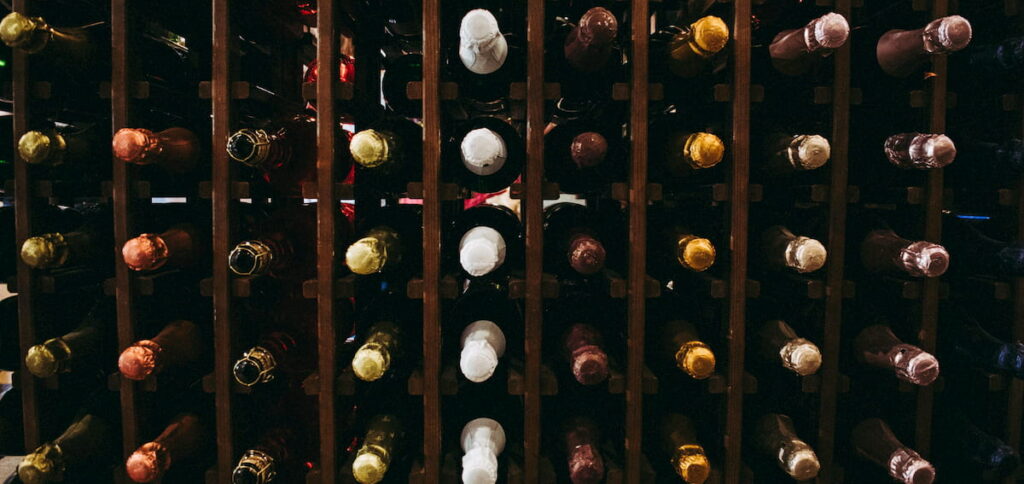The German wine industry during the pandemic

Wine sales via catering services have taken a nosedive due to the coronavirus pandemic, especially during lockdown – a great shock for the German wine market. The German wine industry, however, is using this opportunity, to reinvent itself and is breaking new ground in online retail.
“You need an occasion to drink sparkling wine. If there are no family parties, weddings, birthdays, concerts, conventions or opera performances taking place, there’s no opportunity to drink sparkling wine,” explains Dr. Andreas Brokemper, CEO of Henkell Freixenet, Germany’s largest sparkling wine producer. As an international company that makes two thirds of its sales in foreign markets, Henkell Freixenet has experienced the individual market slump to wildly different extents: In Spain, where the majority of sparkling wine, specifically Cava, is drunk through catered events, the impact is more dramatic than in Germany, where much of the sparkling wine passes through food retailers.
The first lockdown led to sales declines of 80 percent and above for catering, retailers and wineries. Then came a breath of fresh air when from May to September, the German wine market recovered surprisingly well. German holiday areas experienced a formal boom and the wine regions themselves, which had previously been more accustomed to day and weekend tourists, became popular holiday destinations. For many self-marketed wineries with connections to tourism, the holiday season was a real lifesaver. The most recent lockdown that began in November, however, has once again brought the industry to its knees.
The situation is completely different in food and specialty wine retail and in the thriving online wine retail arenas. As with direct sales from wineries to end consumers, all three sales channels were among the first to profit during the crisis.
Germany’s special role in wine consumption
For that reason, many neighboring countries look to Germany in amazement. If you look at wine sales alone, for years Germany has assumed a special status compared to its direct neighbors. While in the romance wine countries of France, Italy and Spain, as well as in neighboring Austria, the majority of wine consumption traditionally takes place during catered events, Germans mostly drink wine in the comfort of their own homes with around three quarters of wine sold in Germany being drunk at home.
This encourages the sale of wine at both supermarkets and discount stores, as well as from online and specialty wine retail. This is especially true wherever operators are pushing back against the crisis and serving their customers creatively with campaigns, online tastings or home deliveries.
Likewise, food retail is experiencing a boom because, as a place of purchase, it includes basic commodities with foodstuffs. Wine sections in food retail are well stocked and are frequented by more customers than usual. The relevant food retail suppliers and the large wineries benefit from this, as do food retail-oriented winegrowing cooperatives.
Numerous medium-sized wineries are also increasingly seeking sales via food retail, especially independent grocery stores, which have, in recent years, greatly upgraded their wine selections.

But it’s not just retail business that is benefiting from this. Customers have more flexibility than ever when it comes to where they purchase wine. This is why a multichannel strategy has become mandatory for all market participants. Physical stores are pushing their online portals, and many wineries are taking their first steps in e-commerce. For wine retailers, their livelihoods have come to depend on their own online shops. Many have expanded their online activity. However, this also requires a significant investment in digital technology, software and manpower.
The coronavirus is also fueling digitalization in the German wine market
Retailers also need to be active on social media channels such as Facebook, Instagram and YouTube. “A clever combination of physical stores, content marketing, social marketing, e-commerce and themed platform offerings shows that sales growth during the coronavirus crisis is possible,” reports Vincenzo Casciato to the trade journal “Weinwirtschaft”. He is the CEO of software company Eurosoft, which offers wine retailers across Germany the opportunity to post their wine selections on the stayhomedrinkwine.de platform. 250 retailers are listed there already.
Weakening markets and high drops in sales: The surplus in the global market is on the rise. South Africa anticipates an excess of 2.5-3 billion hectoliters of wine. Things appear to be similar in France, Italy and Spain. Wine was already being distilled in the summer to prevent the markets from collapsing.
“As with many other areas of daily life, the retail business seriously needs to catch up when it comes to digitalization,” says Stephan Tromp, Deputy CEO of the Handelsverband Deutschland (German Retail Federation – HDE) in an interview with “Weinwirtschaft”. “The coronavirus isn’t the reason, but a magnifying glass,” he explains, and offers help with getting started in the world of digital business with the “ZukunftHandel” initiative from the HDE.
Would you like to share your experiences and innovations with an international audience? Then take part in the next drinktec which will take place in Munich from September 12 to 16, 2022.
